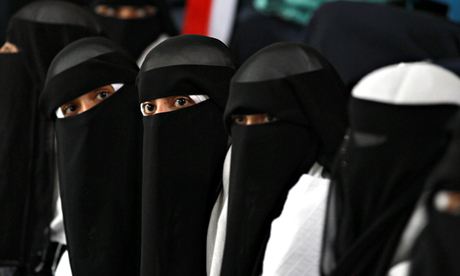Yemen law on child brides and FGM offers hope of wider progress

Yemen is poised to vote on a comprehensive Child Rights Act over the coming months, which would ban child marriage and female genital mutilation (FGM).
The new law would establish the minimum age for marriage as 18, in line with the international human rights standard. Fines would be imposed on guardians, signatories, marriage officials and any other witnesses aware of any contravention.
The push for official legislation on such issues has been endorsed by Hooria Mashhour, the Yemeni human rights minister, and supported by others in government.
If approved by the prime minister and cabinet, the legislation would go to a parliamentary vote. However, successful passage of the law is far from certain. In 2009, an attempt to make 17 the minimum age of marriage for girls was blocked by traditional and religious leaders and the parliament's sharia committee.
The president, Abd Rabbuh Mansur Hadi, now has the power to overrule such decisions. It is far from certain whether he would intervene, but evidence of growing support for protecting girls from early marriage may influence his outlook.
According to the UN, more than half of Yemeni girls are married by the age of 18, which can have serious physical, psychological and educational repercussions.
As a report by Equality Now points out, child marriage does not take place in a vacuum but is rather part of a cycle of abuse and discrimination that often includes sexual violence and FGM.
With this is mind, articles in the Child Rights Act that propose banning FGM – which affects 23% of Yemen's female population – as well as other forms of violence against children, including child labour, are to be welcomed.
In dealing with the rights of girls in a holistic way, Yemen is recognising that an interlinked approach is essential to ensuring those at risk are protected early on from the prospect of a lifetime of abuse. However, such an approach demands that the health, education and justice systems are adequately resourced financially, and that each actor knows their role and responsibility in ensuring the law is effectively implemented and girls are properly educated about their rights.
Neighbouring countries have made moves in both directions. In Pakistan's Sindh province,, the local assembly last month voted in favour of a law establishing 18 as the minimum age of marriage. In Saudi Arabia, regulations were drafted last year but have yet to be introduced.
But proposed legislative changes in the region have not all been positive. While a draft law that would permit nine-year-old Iraqi girls to marry has been shelved, it is indicative of the potential for progress to be undermined.
It is hoped that in Yemen, the authorities will seize the opportunity to make major advances not only for the female population, but for the entire country.
We hope that, on this occasion, traditional and religious leaders will ensure the law is passed by the sharia committee. This would be a big step towards a brighter future for Yemen, one where the rights of girls are firmly at the forefront.
Suad Abu-Dayyeh is Equality Now's Middle East and North Africa consultant


